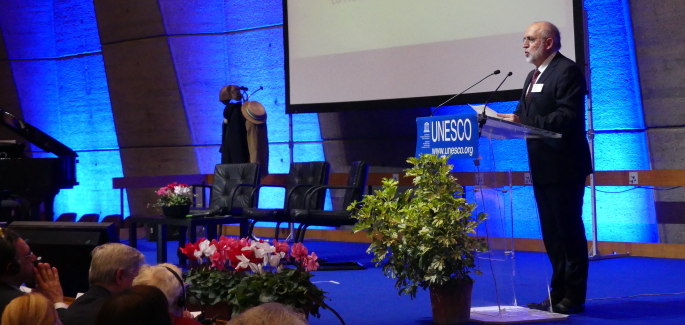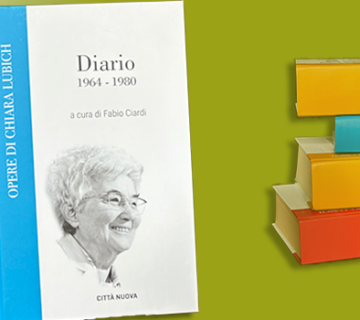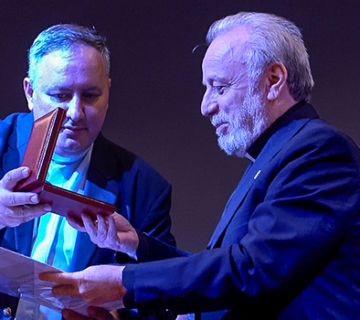“Twenty years ago, in this prestigious hall, Chiara Lubich described the relationship between the culture of unity and peace, by presenting the experience of the Focolare Movement in the world. She said this experience enables mutual recognition of each person’s dignity, fosters a communitarian lifestyle and demolishes the artificial barriers that cause distrust, hostility and enmity. Above all she presented the fundamental idea of a new world order based on an understanding of peace which sees humankind as one family, with God the Father as the source of infinite love for all and for each person. And even though wars were not entirely absent from the world at that time, Chiara Lubich stressed many initiatives and experiences that pointed the way to unity among persons, communities and peoples. […] The world was different twenty years ago. It was troubled by numerous conflicts that were for the most part localized and between recognisable warring parties. The following years revealed the harsh and painful reality of new wars. […] conflicts between religious groups – and others.
[…] The tools of war have changed too. It is clear that today’s wars often occur on the new battlefields of financial and economic markets, to ensure supplies of raw materials and energy resources, and to open up new markets. […] The rise and development of new conflicts means that cultures of peace themselves need to find new and up to date responses. Think for example of the culture of non-violence. It is a truly revolutionary force that seeks to build peace where there are the bloodiest wars. Its power lies in transforming injustice into opportunities to establish projects for peace and forgiveness. It is the response of those who, while being offended and persecuted, refuse to take up arms because they do not believe that warfare is a reasonable way to resolve conflicts.
[…] The spirituality of Chiara Lubich, centred on unity, can make a contribution to present-day cultures of peace. The Focolare Movement is involved in these fields, together with other organizations. It is present in about 180 countries around the world, and in many of them is like a presidium working for unity and peace. Allow me to mention that we have a Focolare community in Aleppo in Syria, which offers space for sharing and mutual solidarity to a people afflicted by war.
[…] No one can save themselves; no-one can hope to be happy on their own.
[…] So the centre of our experience is not a collective entity, nor an impersonal “we”, but a person, the person of Jesus.
It is Jesus, therefore, who brings his peace. Moreover, Jesus shows us the profound extent of what we should do to heal every wound, solve all problems, and settle every conflict. We should love as he loved us, to the point of dying on the Cross out of love for humankind.
[…] The only solution is to engage in dialogue processes involving different cultures, different faiths, different world views, aimed at mutual recognition, international cooperation, the promotion of solidarity and the common good. These are the characteristics of a community based on a lifestyle that seeks unity.
[…]The Focolare Movement is at the service of such a vision, which is crucial to bringing peace to an increasingly interdependent world. Chiara Lubich’s prophetic message, for which she was awarded this prize by UNESCO twenty years ago, is ever more relevant today.


 Italiano
Italiano Español
Español Français
Français Português
Português




No comment